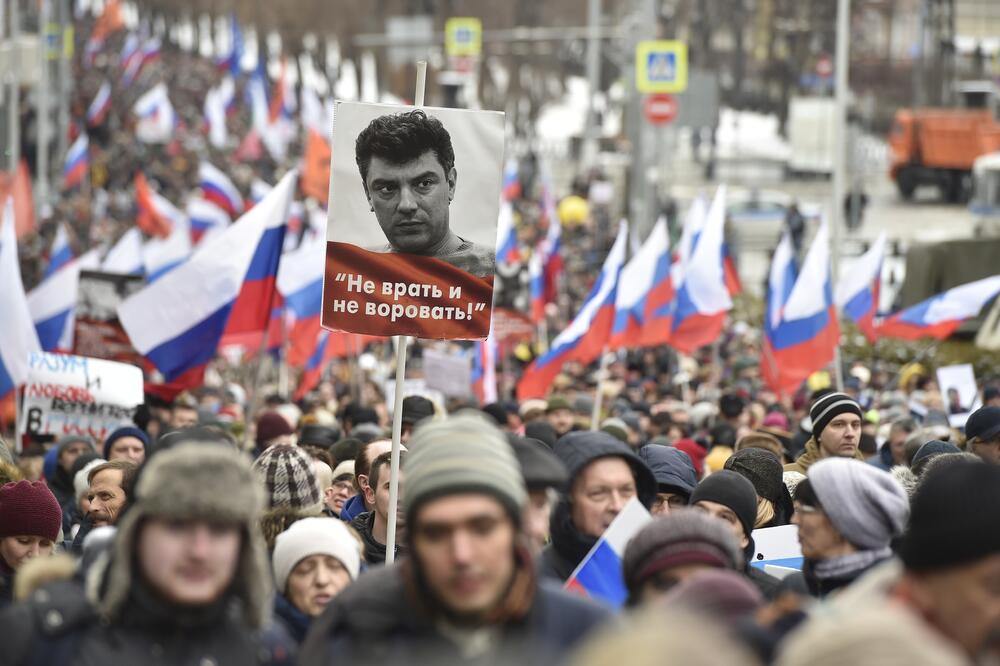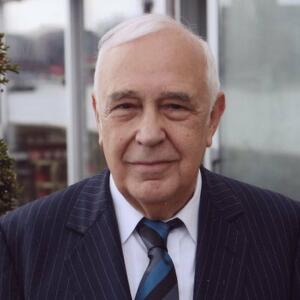I recently watched the moving documentary "The Man Who Was Too Free," about Russian politician and dissident Boris Nemtsov, who was assassinated outside the Kremlin in 2015. A young, handsome political star on the rise in the XNUMXs, Nemtsov later refused to bow to the authoritarianism of the Russian President Vladimir Putin and went to the opposition, where he was harassed, imprisoned and eventually killed. The film made me think about the diminished role of heroism and courage in modern life, as well as the fate of Russia.
Heroism is a product of extreme situations - classically, war and violence are self-evident. Since the western way of life today is not extreme, the value of heroism has declined. However, it is increasingly present in most of the rest of the world, including Russia.
The hero is both noble and self-destructive. Not only will he or she choose an honorable death over a dishonorable life, but he or she would also rather die young and glorious than condemn himself or herself to a long and adaptable existence with honors that are easily acquired (and forgotten).
Hector of Homer's "Iliad" says: "When I die, let me die bravely." The heroic life is essentially tragic; immortality is his only reward. Nemcov is from that story. As some people in the film said, he believed that he would never be liquidated because he had previously been a minister and Boris Yeltsin wanted him as his successor as president of Russia. Still, it seemed to me that he was provoking the Putin regime to kill him.
Unlike heroism, courage is not necessarily tragic. But she experienced a similar fate. War, the main arena for the display of courage, has lost its importance and is now mechanical, and does not require too much effort. While we rightly admire acts of personal bravery, we no longer demand it as a public virtue. We do not expect our politicians to be like the kings who once led their troops into battle, but only to be skilled and thick-skinned.
Moral courage, unlike physical courage, is a civic rather than a military virtue. A person can fear physical harm and be morally fearless. However, moral courage is always less valued than physical courage because it implies going against the grain. Rulers hate it because it calls them to moral responsibility, and it makes the masses uncomfortable because it opposes their prejudices.
From an ethical perspective, moral courage is considered the highest form of courage in the liberal age, because it is intentional rather than instinctive. But its value has decreased along with the penalties for demonstrating it. Opinions that were once considered brave are now just "controversial". While they may result in the loss of a job or friend, it's hardly the same as being burned at the stake.
In the 1660s, the philosopher Thomas Hobbes foreshadowed the decline of public heroism and bravery when he wrote to citizens that "the less they dare, the better for the community and themselves." The rise of professionalism and the spread of peaceful trade and manufacturing diminished the need for heroic or brave deeds. The general tendency of modern science and social organization has been to create a world in which courage and other virtues will no longer be needed. At least in the West, acts of heroism and bravery are now confined to stage and screen, where we can admire them without having to suffer their consequences.
Heroism and courage have always been considered masculine virtues. In a famous Tilbury speech at the time of the Spanish Armada, Queen Elizabeth I of England confirmed the stereotype, saying “I know I have the body of a frail woman; but I have the heart and courage of a king.” Women with the hearts of men were considered exceptional. Conversely, Hobbes argued that "men of effeminate courage" should be exempted from military service because of the risk of desertion. And Adam Smith was not alone in fearing that commerce would make the inhabitants "effeminate and cowardly."
"The vast amounts of largely untapped courage, especially moral, that women represent have generally been neglected by (male) writers. However, the emancipation of women was the result of an increase in female courage. Hannah Arendt, who escaped from Hitler's Germany in the 1930s, showed exemplary moral courage by writing "Eichmann in Jerusalem: An Account of the Banality of Evil" in 1963, about the trial of the logistics mastermind of the Holocaust.
It should not surprise us that young women, most recently teenage Greta Thunberg, have emerged as "green" political leaders. Women thus compensate for the decline of male courage in public life, which makes many men very uncomfortable.
That brings me back to Nemtsov and Russia. In 1996, Nemtsov was the only "liberal" Russian politician to argue that the recently ousted Communist Party, then leading in the polls, should be allowed to compete in the country's presidential elections. He said it was the only way to establish a tradition of legitimate handover of power. Other Russian liberals thought Nemtsov had gone mad. It turns out that Yeltsin's re-election was shamelessly bought, and his successor Putin is kept in power by a kind of "soft dictatorship". Nemtsov, however, was a visionary in advocating for true democracy as the only legitimate modern form of government.
Since 2011, Putin's rule has looked increasingly fragile in the face of growing street protests in Moscow and other Russian cities. When such regimes can no longer be expected to achieve economic prosperity, their future will inevitably come under threat as new heroes emerge in the opposition.
This is a lesson that is emerging not only in Russia, but also in the Middle East and East Asia. In much of the world, the value of heroism is on the rise again. The future may not belong to politicians and diplomats, but to those men - and women - who are not afraid of death.
The author is a member of the British House of Lords and an honorary professor of political economy at the University of Warwick. He started his career as a laborer, later he was elected as the spokesperson of the Conservative Party for economic issues in the parliament, and in the end he was expelled from that party due to his opposition to the NATO intervention in Kosovo in 1999.
Translated and edited by: Angelina Šofranac
Bonus video:





